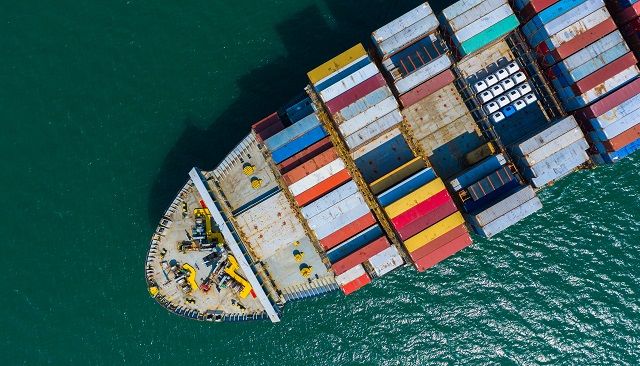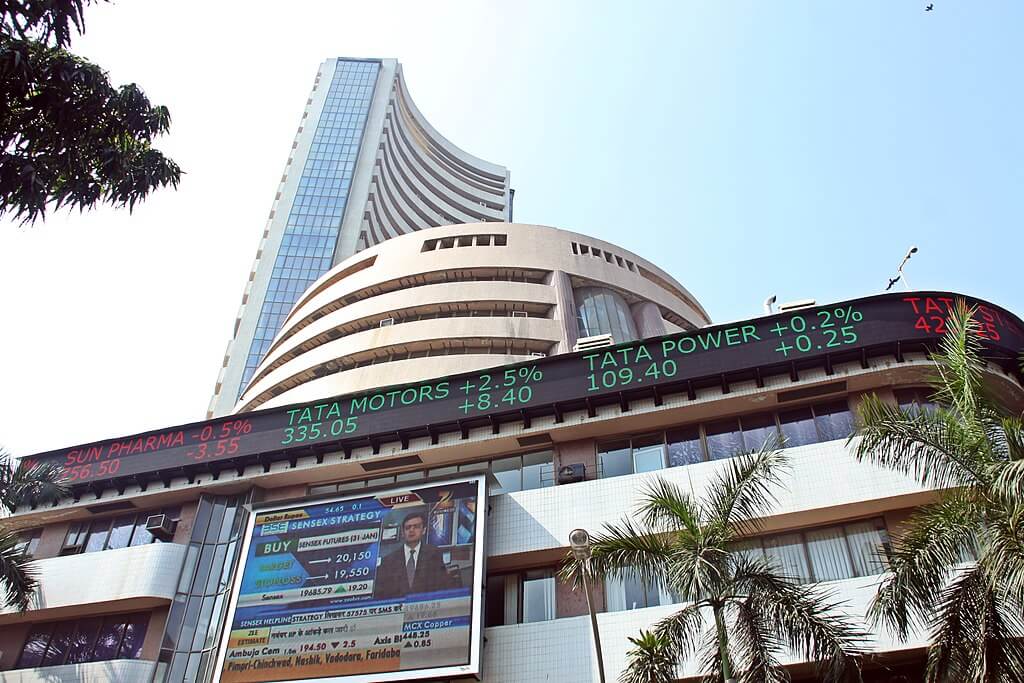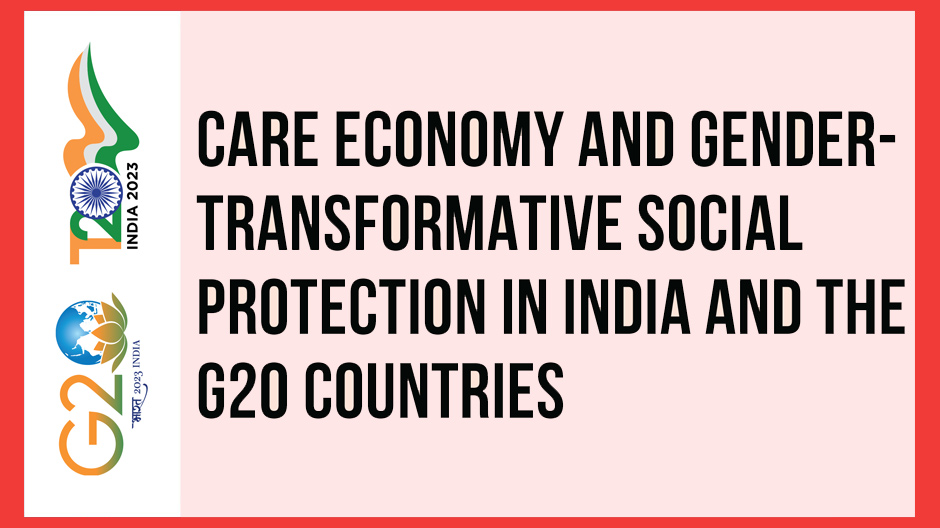Analyzing The Impact Of Reciprocal Tariffs On Indian Industries

Table of Contents
Impact on Specific Indian Industries
Reciprocal tariffs, as retaliatory measures or part of broader trade disputes, create significant challenges for specific Indian industries. Let's examine some key sectors:
The Textile Sector
The Indian textile sector, a major employer, is highly vulnerable to reciprocal tariffs.
- Increased competition from tariff-free imports: Retaliatory tariffs by other countries might lead to a flood of cheaper textiles into India, undercutting domestic producers.
- Reduced export opportunities: Higher tariffs imposed by other nations on Indian textiles directly reduce export volumes and revenue. This is especially impactful for sectors like cotton and silk, heavily reliant on international markets.
- Potential job losses and decreased production: The combination of increased import competition and reduced exports can lead to factory closures, job losses, and a decline in overall textile production.
- Need for government support and policy changes: To mitigate these negative effects, the government needs to actively support the textile industry through various measures:
- Targeted subsidies to boost competitiveness.
- Enhanced export promotion schemes focusing on diversification and value addition.
- Skill development programs to enhance worker productivity and adaptability.
The Automotive Industry
The Indian automotive industry, encompassing both manufacturing and component suppliers, faces a double whammy from reciprocal tariffs.
- Increased prices of imported auto parts: Tariffs on imported parts, such as engines, electronics, and specialized components, raise the cost of vehicle production.
- Impact on consumer affordability and vehicle sales: Higher production costs translate into higher prices for consumers, potentially impacting sales volumes, particularly in price-sensitive segments.
- Potential for domestic auto part manufacturing to gain a competitive edge: However, the increased cost of imports may create opportunities for domestic manufacturers of auto components to expand their market share.
- Need for technological advancements and efficiency improvements: To remain competitive, Indian automakers need to focus on technological innovation, improving production efficiency, and exploring alternative supply chains.
The Pharmaceutical Industry
The pharmaceutical sector, a significant player in the global generic drug market, is also affected by reciprocal tariffs.
- Higher costs of imported raw materials and active pharmaceutical ingredients (APIs): Many pharmaceutical companies rely on imported APIs, and tariffs on these inputs directly increase production costs.
- Impact on the affordability of medicines for the Indian population: Higher production costs can translate into more expensive medicines, potentially impacting access to healthcare, particularly for low-income populations.
- Increased reliance on domestic manufacturing and supply chain diversification: This situation necessitates a greater focus on domestic API production and diversification of supply chains to reduce vulnerability to external shocks.
- Opportunities for innovation and development of generic drugs: The challenges presented by reciprocal tariffs could incentivize innovation and the development of cost-effective generic drugs, strengthening India's position in the global pharmaceutical market.
Macroeconomic Consequences of Reciprocal Tariffs
The impact of reciprocal tariffs extends beyond individual industries, creating significant macroeconomic consequences.
Inflationary Pressures
Increased prices of imported goods, due to tariffs, directly contribute to inflationary pressures within the Indian economy, impacting consumer purchasing power and overall economic stability.
Reduced Economic Growth
Decreased trade volumes and reduced investment resulting from trade uncertainty caused by reciprocal tariffs can significantly hamper GDP growth, potentially leading to slower economic expansion.
Impact on Foreign Investment
The uncertainty and instability created by reciprocal tariffs can deter foreign direct investment (FDI), as investors become hesitant to commit capital in a volatile trade environment.
Balance of Trade Implications
A significant impact is on India's balance of trade. Reduced exports and increased import costs due to tariffs can worsen the trade deficit, potentially destabilizing the economy. Detailed analysis of import/export ratios across affected sectors is necessary to understand the full extent of this impact.
Government Policies and Mitigation Strategies
To mitigate the adverse effects of reciprocal tariffs, the Indian government needs to implement a multi-pronged approach.
Trade Negotiations and Agreements
Active participation in multilateral and bilateral trade negotiations is crucial to secure favorable trade terms and reduce the impact of reciprocal tariffs. This includes strengthening existing agreements and forging new partnerships.
Support for Domestic Industries
The government must implement supportive policies to aid affected industries, such as:
- Targeted tax breaks to boost competitiveness.
- Financial assistance packages to help companies navigate challenging times.
- Skill development programs to equip workers with the skills needed for a changing economic landscape.
Diversification of Export Markets
Reducing reliance on specific export markets is critical. India should actively explore and cultivate new export destinations to reduce vulnerability to trade disputes.
Promoting Technological Upgradation
Investing in research and development and promoting technological advancements are crucial for enhancing the competitiveness of Indian industries in the global marketplace.
Conclusion
The imposition of reciprocal tariffs presents a complex challenge for Indian industries. While some sectors might experience short-term gains, the overall impact on the economy can be detrimental. Understanding the nuanced effects of these tariffs on various sectors is critical for effective policy formulation. The Indian government must proactively engage in trade negotiations, implement supportive policies for affected industries, and encourage diversification to mitigate the adverse consequences of reciprocal tariffs. Further research into the long-term effects of these tariffs on the Indian economy is crucial. By carefully analyzing the impact of reciprocal tariffs on Indian industries, policymakers can develop strategies to ensure sustainable economic growth and stability. The continued monitoring and adaptation to changing global trade dynamics are essential for navigating the challenges posed by reciprocal tariffs and ensuring the continued competitiveness of Indian industries on the global stage.

Featured Posts
-
 Market Surge Sensex Up Bse Stocks With 10 Gains
May 15, 2025
Market Surge Sensex Up Bse Stocks With 10 Gains
May 15, 2025 -
 Reshaping Indias Insurance Landscape The Transformative Power Of Ind As 117
May 15, 2025
Reshaping Indias Insurance Landscape The Transformative Power Of Ind As 117
May 15, 2025 -
 Carsamba Ledra Pal Da Dijital Veri Tabani Ile Isguecue Piyasasi Analizi
May 15, 2025
Carsamba Ledra Pal Da Dijital Veri Tabani Ile Isguecue Piyasasi Analizi
May 15, 2025 -
 R400 Investment In Baazar Style Retail A Jm Financial Perspective
May 15, 2025
R400 Investment In Baazar Style Retail A Jm Financial Perspective
May 15, 2025 -
 Burak Mavis Ve Akkor Davasi Karma Evlilik Veya Avrupa Insan Haklari Mahkemesi
May 15, 2025
Burak Mavis Ve Akkor Davasi Karma Evlilik Veya Avrupa Insan Haklari Mahkemesi
May 15, 2025
Latest Posts
-
 Actie Tegen Npo De Rol Van Frederieke Leeflang Onder De Loep
May 15, 2025
Actie Tegen Npo De Rol Van Frederieke Leeflang Onder De Loep
May 15, 2025 -
 Analyse De Actie Tegen Npo Baas Frederieke Leeflang
May 15, 2025
Analyse De Actie Tegen Npo Baas Frederieke Leeflang
May 15, 2025 -
 De Gevolgen Van De Actie Tegen Npo Directeur Frederieke Leeflang
May 15, 2025
De Gevolgen Van De Actie Tegen Npo Directeur Frederieke Leeflang
May 15, 2025 -
 Wordt Frederieke Leeflang Npo Baas Getroffen Door Een Nieuwe Actie
May 15, 2025
Wordt Frederieke Leeflang Npo Baas Getroffen Door Een Nieuwe Actie
May 15, 2025 -
 Reacties Op De Actie Gericht Tegen Frederieke Leeflang Npo Baas
May 15, 2025
Reacties Op De Actie Gericht Tegen Frederieke Leeflang Npo Baas
May 15, 2025
